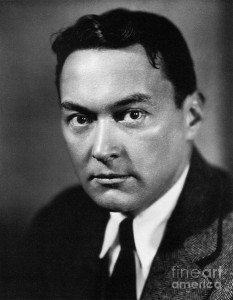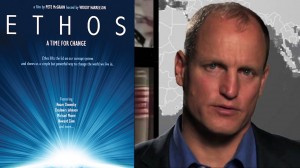Many ethical movements in recent years have wittingly or unwittingly adopted an ethical stance that I will here call “passing the buck downwards.” This is the idea that the solution to a problem or crisis–be it economic, environmental, or otherwise–requires small changes to be made by a large number of individuals without necessarily making any changes to the law. “Passing the buck upwards” is the opposite stance. It places the onus of solving a problem or crisis upon the elite/moneyed/privileged/ruling class. Here, I suggest that a realistic solution to the social, political, and environmental crises facing our generation will require more than the voluntary incremental change of individuals. In a word, it will require passing the buck upwards.
A Case study: Plastics
It has been widely known for perhaps the last ten years that plastics are more harmful to the environment than we had previously suspected. Essentially, plastics end up in oceans and waterways where they eventually break down but do not decompose. Once they have broken down into tiny bits, they are consumed by fish and other sea life that mistake them for plankton.
Once inside the body of the fish, the plastics can chemically imitate the role of estrogen, leading to mutations such as hermaphroditic fish. In turn, the sea life is consumed by human beings, where, one can assume, it also has ill health effects. Larger plastics are to be found in the bellies of wild sea birds.

Juvenile Herring Gull, Larus Argentatus with plastic rubbish in its beak, Newquay, Cornwall, UK. (Photo By: Education Images/UIG via Getty Images)
One study found that in 1960, fewer than five percent of sea birds had traces of plastic in them, and the number had jumped to 80 percent by 1980. The production of plastic has risen and continues to rise exponentially. By now it is likely that plastic can be found in almost all seabirds. The large plastics they consume often kill them by filling their guts and/or puncturing internal organs.
A solution that passes the buck downwards would place the onus of the solution upon the mass of individuals to no longer purchase or use disposable, non-biodegradable plastics like plastic bags, bottles, and lighters. A solution that passes the buck upwards would come in the form of legislation outlawing disposable plastics.
Examples can be seen of both. A number of cities and states have enacted legislation that either prohibits or places a tax on the use of disposable plastic bags, and other states have passed legislation that does the opposite: protecting plastics from legislation. A company like Trader Joes or Whole Foods that takes it upon themselves to not use plastic bags has found a rare happy medium between the two: the idea of an ecologically conscious corporation. The corporation sees that the consumers want a less “guilty” purchasing experience; the corporation has made a policy to reflect that; and the customers have voluntarily agreed to go along with it. But, it must be noted that these efforts may not be sufficient. Merely eliminating plastic bags at the checkout is a nominal gesture compared to the plastic packaging on other products sold.
In the case of plastics, history has shown the only real solutions to occur when the buck is passed upwards. To place the onus upon individuals simply does not work. If the plastics are available, there will always be a few consumers that voluntarily forgo the plastics, but a larger number that opt for convenience over altruism.
This point becomes more obvious in the example of plastic microbeads. Plastic microbeads are currently used in soaps, toothpaste, and other products. These beads are easily replaced with ecologically friendly biodegradable substitutes such as pulverized walnut shells.
Lets say I am a mechanic that knows of the ill effects of plastics in the water, and therefore I forego using the microbead laden soap at the shop to clean my hands. While no one can fault my altruistic efforts, in the face of the number of greasy hands that need to be cleaned in shops around the country and world, these efforts will not be enough.
In 2015 federal legislation was passed to phase out microbeads in personal care products by 2017. In this case, the legislation accomplished what would in fact never be accomplished by individuals acting altruistically.
The Argument for Passing the Buck Downwards
Perhaps the most explicit popular argument for passing the buck downwards is to be found in a documentary written and directed by Pete McGrain and starring Woody Harrelson: Ethos: Time to Unslave Humanity. At the start of the documentary, Harrelson begins with a sort of mission statement.
Everyday we turn on the TV, and there’s more bad news. Another environmental catastrophe somewhere, or more starving refugees, or innocent victims in war zones. Most of us are trying to make ends meet in our own lives, and we see these images and feel helpless to do anything about it. I think that the deep shame we feel about that is paralyzing, certainly one of the reasons that we turn away. The object of this documentary is to look at the flaws in our systems that allow these things to happen, and the mechanisms that actually work against us, and to show you a very simple, but powerful way that we can actually change the world that we live in.
The documentary goes on to use numerous interviews with politicians, insiders, and intellectuals to paint a picture of the United States as what is essentially a totalitarian regime in which corporations have taken over democracy. McGrain points to the establishment of the Federal Reserve in 1913 under Woodrow Wilson as a turning point in which government first came under the authority of private capital, and the Great Depression is conveyed as having been deliberately instigated by the banking cartel behind the Federal Reserve, by means of calling in loans all at once, in order to consolidate its power.
Big money is also conveyed as controlling the media.
The media gives the illusion of choice in the political sphere by focusing on non-economic moral differences (e.g. gay marriage, abortion) when, in fact, democratic and republican options are both apiece in their allegiance to big money.
The media is used to control the population and to make them into passive consumers, and employs political and psychological strategies developed by Walter Lippmann, Reinhold Neibuhr, and Edward Bernays, among others.

Walter Lippmann (1889-1974) , Harvard graduate, famous for his book Public Opinion, in which he coined the term “Public Relations”
McGrain goes on to discuss the development of the military industrial complex, also known as the Iron Triangle, which has as its vertices the military, big business, and politics. McGrain focuses on the Carlyle group as an illustrative example. He goes on to discuss the war on terror as having been the product of this type of infrastructure.
The only answer, according to the documentary, is for the mass of enlightened consumers to use their spending power to control the corporations from below by forgoing the purchase of certain products and preferring others produced by corporations or companies that demonstrate higher ideals. In a word, the buck is passed downwards.
The Argument for Passing the Buck Upwards
In the interest of keeping this article brief, I will not go into potentially lengthy arguments for passing the buck upwards. While McGrain’s picture of the status of the American political situation is influenced by the work of Noam Chomsky, his solution of passing the buck downwards is his own. In place of long argumentation, I will only make a few suggestions here.
First of all, from an ethical perspective, placing added burdens on a class that is already by definition burdened ought to be suspect. The labor of the lower classes already produces the wealth of the upper classes, why should they also carry the guilt of being responsible for the future?
Secondly, a question of efficacy arises. No one will argue that acting as an enlightened consumer is a bad thing or that it does not bring benefits, but the counterargument is that it simply may not be enough. One’s purchasing decisions largely have to do with one’s own life. Certainly, if we all began buying local, used, and ethical, one would see vast changes. But, the more constrained one is financially, the less power one will have over ones buying decisions. It is also unclear how individual purchasing decisions would dismantle something like the military-industrial complex–the so-called Iron Triangle–which is an economy unto itself, supported by tax dollars. Even if it could work theoretically, it may not be efficient enough in practice to avert disaster.
This leads to the third argument: the concept that the environmental, social, and political future can be secured by virtue of a non-legislated agreement among the ruled is utopian. The more people are involved, the less likely will be a consensus of opinion. The hypothetical agreement among the masses will never be achieved in practice.
These three arguments tie together and lend support to one another. Why is a universal or majority agreement impossible and utopian? It is partly because the laboring class is too constrained for time, money, and education to make such agreement possible.
To these three arguments, one can add a fourth. Placing faith in the concept that the laboring class will secure the social, political, and environmental future of its own volition could have the affect of lessening the urgency of the ruling class to provide solutions. It ought to be in the interest of the ruling class to maintain peaceful conditions, if only to retain their own privileged status. If they believe that changes will be handled by the lower class, it gives them free reign to continue unchanged.
Deconstructing Veganism
Veganism might be considered the example par excellence of passing the buck downward because adopting a vegan lifestyle is conveyed as ethical, environmental, and healthy, and requires no legislation whatsoever. A vegan lifestyle would tie in nicely with the ideals placed by McGrain.
Why this is so should be widely known. A UN report found that animal agriculture was responsible for more greenhouse gasses than the transportation industry. This finding was bolstered by a 2009 study by the Netherlands Environmental Assessment Agency, which concluded that, if everyone went vegan, there would be an approximate 20 percent reduction in greenhouse gasses by 2050, along with a surplus of land. (40 percent of grains raised in the US are used to feed livestock. ) This does not even bring into account the water usage, deforestation, animal suffering, and potential diseases caused by the factory farming of meat. In fact, the UN itself has suggested a global shift towards a vegan diet. In other words, the UN has suggested that the buck be passed downwards.
While veganism renders very real and measurable benefits, the suggestion that veganism take hold of its own accord and avert environmental catastrophe is an extreme form of passing the buck downward, and, as such, it is implausible and utopian. If we consider the consumption of meat to be an evil, it is a recalcitrant evil, like the trade in illegal drugs.
The illegal drug trade/war on drugs is a useful schema by-which to understand the complex relationship between the environmental benefits that we desire of veganism, the law, and the nature of the public. It becomes obvious that, while veganism cannot be legislated, some of the environmental benefits of veganism might be retained by placing constraints upon factory farming.
At the same time that some of the environmental affects of meat consumption can be mitigated through legislation, one can also assume that they cannot and will not be eliminated. Veganism will not prevail, either through legislation or through voluntary means. This realization leads one to focus on what may be perhaps the only solution: focusing on limiting worldwide population growth.
Once we grasp the fact that the entire planet will not go vegan by 2050, or at any point in the foreseeable future, we can begin the process of rational, incremental, top-down change to stabilize environmental situation for future generations. One way of doing so would be to focus on the limitation of the human population itself.
The Way Forward
Throughout this article, I have attempted to emphasize that the efforts of individuals ought not to be discounted. They may be a necessary condition to secure the future, but they will not be sufficient. It is a dire necessity to force both guilt and responsibility upon the privileged few on account of the proven efficacy of the top-down approach. It has not gone beyond notice that Americans in particular have become disillusioned with government, and government is viewed as already having been thoroughly corrupted by capital. As a result, we suffer from a socio-political cognitive dissonance.
If McGrain’s idea is that we detach from politics and vote with our dollars instead, this article suggests that a renewed political vigor is also required. What form that vigor takes is an open question, but ours is a time when achieving enlightened legislation is more important than ever. Given the degree to which politics is already tied to capital, the necessary measures may not even be legal, requiring a form of civil disobedience. Even extreme forms of civil disobedience would be preferable to genuine revolution. Presumably, placing limits on the global population will have to be a part of any workable scenario.



